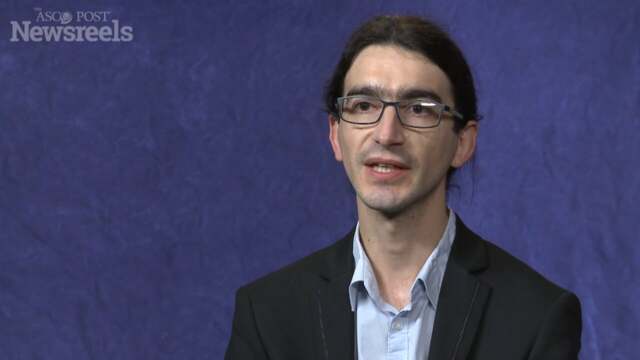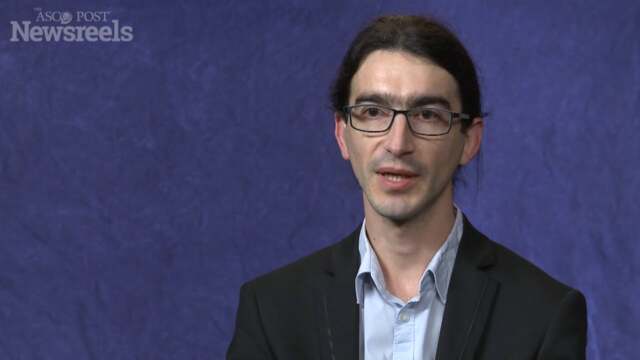Mark Talamonti, MD, on Pancreatic Cancer: Minimally Invasive Resection
2017 Gastrointestinal Cancers Symposium
Mark Talamonti, MD, of NorthShore University Health System, discusses the technical prerequisites for minimally invasive surgery in pancreatic cancers and the potential benefits to patients.
Cynthia L. Sears, MD, of Johns Hopkins University School of Medicine, summarizes her keynote talk on microbes, microbiota, and colon cancer. Next-generation sequencing combined with biologic studies suggests that most colorectal cancer cases have specific microbiome associations.
Scott Kopetz, MD, of The University of Texas MD Anderson Cancer Center, discusses study findings on irinotecan and cetuximab with or without vemurafenib in BRAF-mutant metastatic colorectal cancer (Abstract 520).
Julien Edeline, MD, of the Centre Eugène Marquis, discusses in French study findings on gemcitabine and oxaliplatin vs surveillance following surgery for localized biliary tract cancer (Abstract 225).
Julien Edeline, MD, of the Centre Eugène Marquis, discusses study findings on gemcitabine and oxaliplatin vs surveillance following surgery for localized biliary tract cancer (Abstract 225).
Brendan J. Guercio, MD, of the Dana-Farber Cancer Institute, discusses results from a study of patients with metastatic colorectal cancer who took part in weekly physical activity and its impact on their disease progression and overall survival (Abstract 659).





